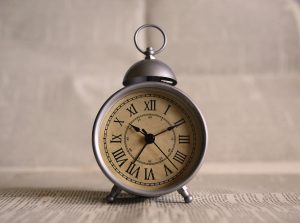 Is eating after 8pm bad for you? Does it affect your digestion and make you gain weight easier? Do you need those bedtime calories to sleep soundly and get to sleep quicker? That’s a conundrum that’s plagued humanity for the last few decades. Not only does what you eat before bedtime make a difference, how much you eat is also important. There are also questions about physical problems eating too late can cause, like acid reflux.
Is eating after 8pm bad for you? Does it affect your digestion and make you gain weight easier? Do you need those bedtime calories to sleep soundly and get to sleep quicker? That’s a conundrum that’s plagued humanity for the last few decades. Not only does what you eat before bedtime make a difference, how much you eat is also important. There are also questions about physical problems eating too late can cause, like acid reflux.
Is there a link between nighttime eating and gaining weight?
Some studies say there may be, while other studies show the opposite. The truth is, a calorie is a calorie, no matter when you eat it. However, consuming food within a certain window of time, automatically limits your intake of food. If you cut out food after a certain hour, you’re automatically cutting out calories from your diet, most of which come from foods that are ready to eat, like pastry and junk food. So, eating late can cause an increase in calories because it allows you to eat more food. That will cause weight gain.
Why would you eat at night?
Man was wired for survival long before refrigeration or grocery stores. If you’re hungry, that original instinct triggers your brain to stay up and look for food. Our lifestyle has evolved, but the same instincts remain. If you have problems with insomnia on an empty stomach, keep foods high in tryptophan available for a late night snack. It’s an amino acid that helps create niacin, which is necessary to make serotonin that can help you sleep. Foods that are high in tryptophan include eggs, cheese, chicken, milk, soy and turkey.
Choose your late night snack wisely and include it in your overall diet.
Just like foods with tryptophan, foods that contain melatonin can be beneficial for sleep. Melatonin improves the circadian rhythm and that can help treat insomnia and improve sleep disorders. Is jet lag a problem? Blame it on messing with your circadian rhythm. Almonds are one source of melatonin. Pistachios, eggs, milk, goji berries and fish are also good sources. Increasing your vitamin D can also help, especially when it’s combined with omega-3 fatty acids because it boosts serotonin production. Tuna, salmon and other fatty fish provide both.
- Consuming food with magnesium can also help improve the quality of sleep. It lowers stress hormone levels. Almonds contain magnesium, so one ounce at bedtime may be beneficial.
- If you eat at night, make sure you eat light with foods that are easily digested. Your body needs activity to digest food, especially a big meal. Avoid fatty food, like fries or chips. Saturated fat affects the quality of sleep, interrupting NREM sleep.
- Be prepared if you know you’ll be hungry before bed. Make a parfait in a small mason jar with a lid containing Greek yogurt, walnuts and black cherries. Store it in the refrigerator. Have a fruit bowl ready that has cherries and kiwi—for the serotonin—and bananas for the magnesium.
- Focus on carbs before bed. They’re easier to digest and help you sleep better according to one study. Again, this may relate back to earlier instincts that allowed man to relax when his belly was full.
For more information, contact us today at Prime Fitness NJ
